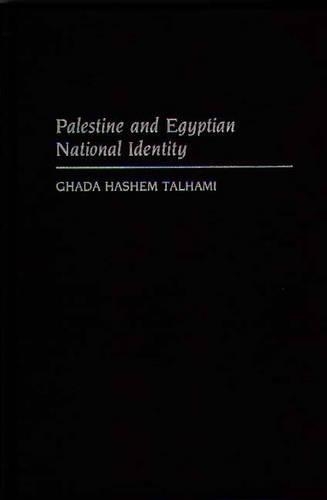
Palestine and the Egyptian National Identity
(Hardback)
Publishing Details
Palestine and the Egyptian National Identity
By (Author) Ghada Hashem Talhami
Bloomsbury Publishing PLC
Praeger Publishers Inc
28th February 1992
United States
Classifications
Tertiary Education
Non Fiction
Asian history
African history
956.94
Physical Properties
Hardback
192
Description
In this examination of one of the world's most ancient societies, Talhami describes Egypt's quest for a sense of national identity and the factors that have affected the Egyptian identity. Generally polarized over the identity issue since the 19th century, Egyptians debated the significance of Sudanese bonds as a definer of Egypts's historic and national development before they debated the significance of Arab, particularly Palestinian, involvement. Nasser's rise to power, Talhami argues, amounted to an inevitable swing in the direction of pan-Arabism because of the strategic developments surrounding the rise of Israel. The author also examines Egypt's foreign policy in light of the identity question.
Reviews
Talhami has written a good intellectual history of the debate in Egypt concerning Egyptian identity and the relation of that identity to the Palestine question. It is in the tradition of two earlier books, Anis Sayigh's Al-fikra al-Arabiyah fi Misr (The Arab Idea in Egypt) (Beirut, 1959) and Nadav Safran, Egypt in Search of Political Community (1961). Talhami traces the development of Egyptian ideas about, and commitment to, the Palestinians throughout the 20th century. She argues convincingly that, while political leaders have responded to Palestinian concerns based on their view of Egyptian interests, the Egyptian public and intellectuals have approached the Palestinian issue on the basis of their formulation of Egyptian identity. Thus, the advocates of Egyptian nationalism or a Mediterranean/European-oriented Egypt are less interested in, or supportive of, Palestinians than those who think of Egypt as an Arab or a Muslim country. The book is well documented and well written, is based on primary Arabic-language sources, and provides a good summary of the debates. Upper-division undergraduate and graduate students.-Choice
"Talhami has written a good intellectual history of the debate in Egypt concerning Egyptian identity and the relation of that identity to the Palestine question. It is in the tradition of two earlier books, Anis Sayigh's Al-fikra al-Arabiyah fi Misr (The Arab Idea in Egypt) (Beirut, 1959) and Nadav Safran, Egypt in Search of Political Community (1961). Talhami traces the development of Egyptian ideas about, and commitment to, the Palestinians throughout the 20th century. She argues convincingly that, while political leaders have responded to Palestinian concerns based on their view of Egyptian interests, the Egyptian public and intellectuals have approached the Palestinian issue on the basis of their formulation of Egyptian identity. Thus, the advocates of Egyptian nationalism or a Mediterranean/European-oriented Egypt are less interested in, or supportive of, Palestinians than those who think of Egypt as an Arab or a Muslim country. The book is well documented and well written, is based on primary Arabic-language sources, and provides a good summary of the debates. Upper-division undergraduate and graduate students."-Choice
Author Bio
GHADA HASHEM TALHAMI is Associate Professor of Politics at Lake Forest College. She was born in Jerusalem and was educated in England, Jordan, and the United States. She is the author of Suakin and Massawa under Egyptian Rule, 1865-1881 (1979), as well as numerous articles on Palestinian nationalism, Islamic fundamentalism, women in revolutionary movements, Islam in Africa, and Palestinian human rights. Dr. Talhami is a fellow of the Middle East Studies Center at the University of Chicago.
